Movie of the Week: Honky Tonk (1941)
Clark Gable is a quick witted con man in the Old West and Lana Turner is the prudish judge’s daughter he’s after in Honky Tonk (1941).
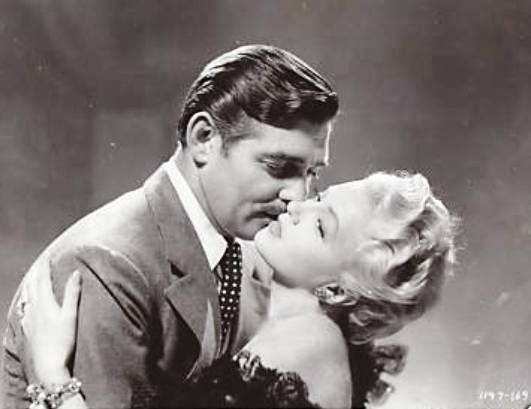
Gable is fugitive con artist Candy Johnson, who stumbles upon the small town of Yellow Creek while on the run. He quickly takes advantage of the town’s lack of law and order. He also steals the heart of Elizabeth (Turner), a Boston-bred girl with a crooked father (Frank Morgan). Although he insists he can’t be tied down, she manipulates him into marrying her and he becomes the most respected man in Yellow Creek. Her father doesn’t trust him, however, and sets out to destroy his reputation in town.
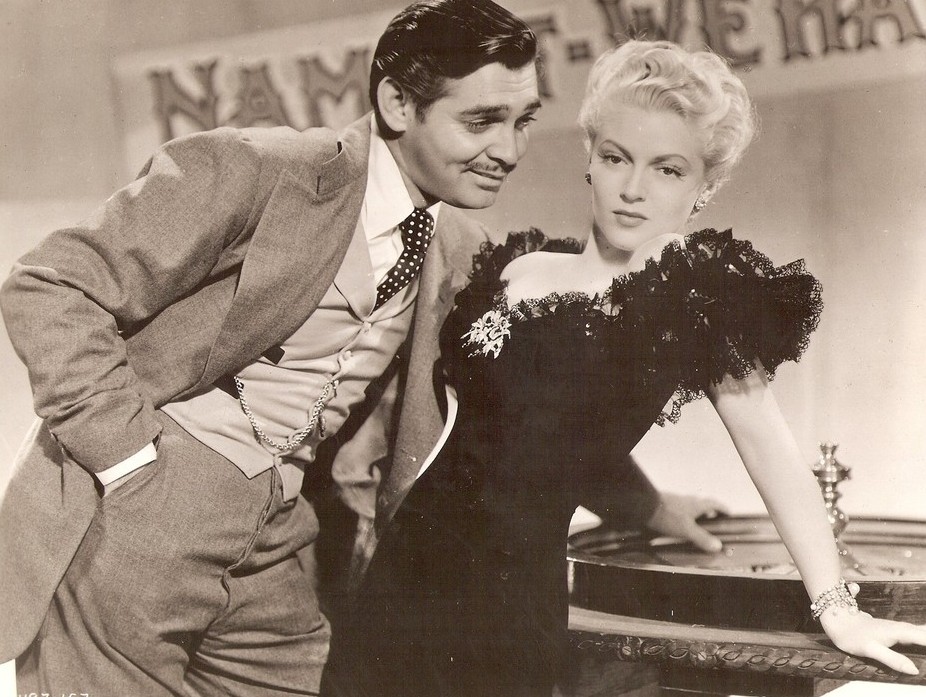
Here we have Clark at the top of his game. This was the golden period of his career: fresh off of Gone with the Wind and its success, married to Carole, churning out hit after hit at MGM. Candy Johnson echoes Rhett Butler in many ways, actually–the ruthless, rebellious, charming outsider who turns out to have a real heart. Candy even busts through his wife’s bedroom door when he is denied, um, access to his own wife, just as Rhett Butler does. And both in Gone with the Wind and Honky Tonk, the wives fall victim to a common classic movie cliche of falling and miscarrying. Candy’s pacing outside the door, waiting to hear if his wife is okay, is just like Rhett’s in GWTW.
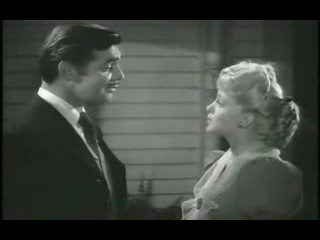
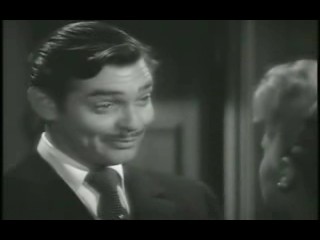
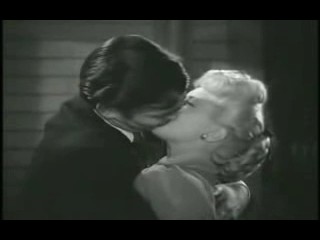
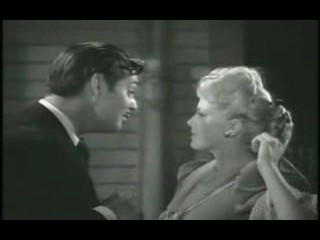
Lana’s prim-and-proper Boston lady is no Scarlett O’Hara however. She’s oh-so-appalled at everything he does yet he keeps chasing her.
“Mr. Johnson,” she says primly, “I’ve come down to tell you you’re on the wrong side of town.”
“I think the two sides ought to get together,” he says with that Rhett Butler-eyebrow raise.
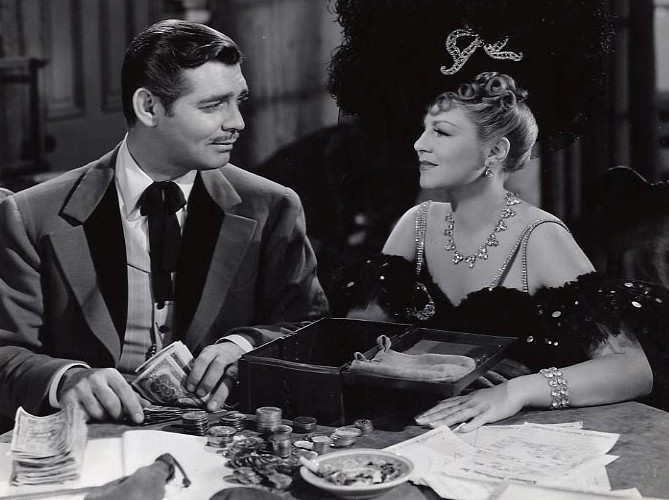
Both Rhett and Candy have, um, friends that are “ladies of the night.” Rhett Butler has his Belle Watling (Ona Munson) and Candy has “Gold Dust” (Claire Trevor), both of whom are in love with him but lose out to his love for a “proper lady.”
Much had been made by the MGM publicity machine of Clark Gable and Lana Turner being “the team that makes steam,” however, I don’t really find that true here, maybe because Lana’s character is just so prissy. Clark’s in hot pursuit though. The lines he throws at Lana:
“I’ve got a compliment for you: you’re prettier than you were last night.”
“Every time I get a hold of you, I forget we’re married.”
“I never can figure it out–whether you’re prettier by lamplight or by daylight.”
“Anything I like I don’t let get away from me.”
She’s rather infuriating. She knows he’s no good and is just trying to sleep with her, so she gets him drunk, marries him and then refuses to sleep with him. She even becomes upset at his anger when she locks him out. So her plan was apparently to marry him and keep him like a caged dog.
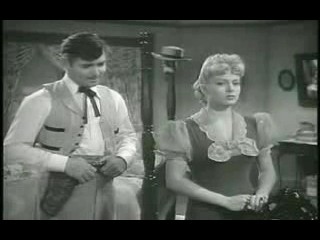
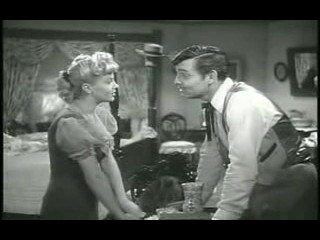
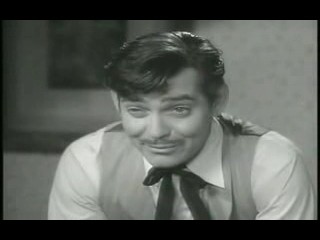
After he wakes up the next morning and realizes what happened: “We’re married..I’ve heard that all brides are nervous…” he says slyly, chasing her around the bedroom with his eyebrows raised. She is somehow appalled by this and looks panicked.
“It’s too bad we couldn’t have had one of those long Boston courtships,” he says, “in three or four years from now, you’d have been cool as a cucumber.”
She looks defiant.”We are going to have one of those long Boston courtships. The only difference is it’s starting after the wedding. I’m going to have respect from you, Candy Johnson.”
“That ain’t why you married me, honey,” he says with the raised eyebrows.
Indeed.
There’s a great supporting cast here. Frequent Gable co-star and friend Frank Morgan is Lana’s crooked father and Marjorie Main is here too, with her typical wisecracks.
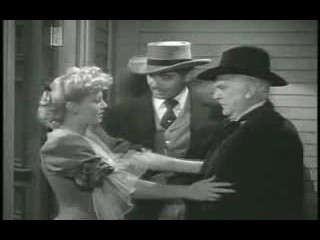
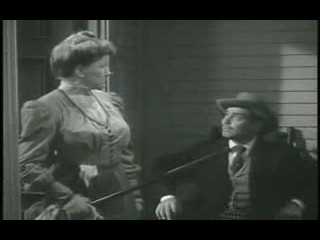
This film was one of the most successful of Clark Gable’s career, earning $8,676,400 worldwide.
Full review is here
Nutshell review is here
Follow us on Facebook and Instagram all week for photos and trivia!